
In Asiatown, Houston's last cha-chaan-teng gives Hong Kongers a taste of home
Tucked away in the corner lot of Diho Square, sandwiched between a veteran sushi restaurant and a vegetarian buffet, lies Houston’s only cha-chaan-teng.
Hong Kong’s Cafe, established in the spring of 2006, is one of the last bastions of Hong Kong cuisine in the city, serving up dishes of British-Chinese fusion cuisine. Translated loosely, cha-chaan-teng means “tea restaurant” and is as ubiquitous in Hong Kong as diners are in America.
These humble restaurants are a signifier of the island’s unique culinary landscape, known for fast, affordable meals. But here in Asiatown, Hong Kong’s Cafe is more than a restaurant; it is an institution that embodies comfort for a portion of Houston’s Chinese diaspora.
According to a 2015 census of Clutch City’s foreign born population, less than 2,000 Houstonians come from Hong Kong. The recent pro-democratic protests of 2019 have led to a mass exodus of Hong Kongers to other countries, as many flee the increasingly authoritarian hand of the Chinese government. Across the world, pockets of the Hongkongese community protested alongside those in their motherland. The protests’ controversies even reached Houston, evident in a now-deleted tweet published by the Houston Rockets former general manager, Daryl Morey.
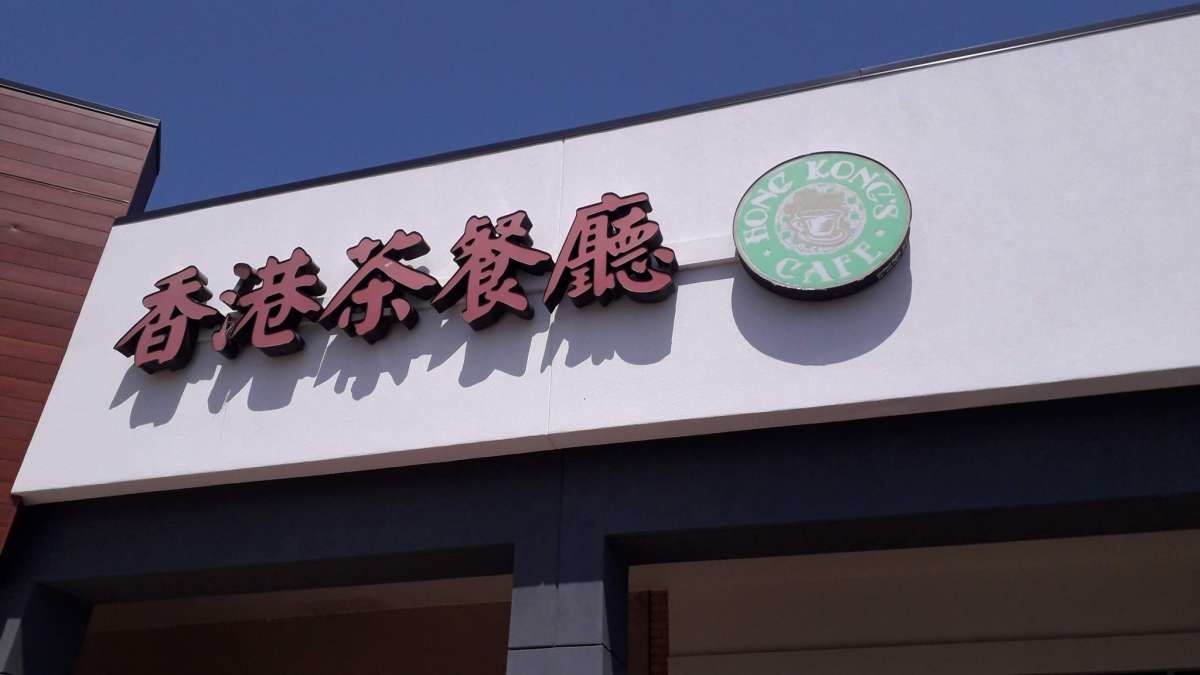 Hong Kong’s Cafe, located in the corner lot of Diho Square.
Hong Kong’s Cafe, located in the corner lot of Diho Square.
To these immigrants, reminders of home are highly sought after, as many lobby to retain facets of their identity. Even before the recent protests, Hong Kongers chafed under the label of being Chinese. Culturally, Hong Kong differs from China because of its ties to British colonialism, democratic practices and language. They speak Cantonese, not Mandarin, and served as the link between the East and the West for centuries.
These distinctions make a world of difference to Hong Kongers, even extending to their cuisine. Hong Kong cuisine has been colored by a long history of British colonialism, Southern Chinese tradition and pure necessity. In the aftermath of the First Opium War, the harbor port was awarded to the British Crown, which ruled from 1841 to 1997. To accommodate their colonizers, locals began pouring milk into their tea and adapting foreign ingredients into traditional favorites, and thus, a fusion cuisine was born.
The cha-chaan-teng became a cultural byproduct of colonial history, and serves Hong Kong-style meals that are not found anywhere in China. At Hong Kong’s Cafe, you'll find standard Chinese staples — fried rice, chow mein and imitation shark fin soup, if you’re into that kind of thing — but the real pièces de résistance don’t sound Chinese at all.
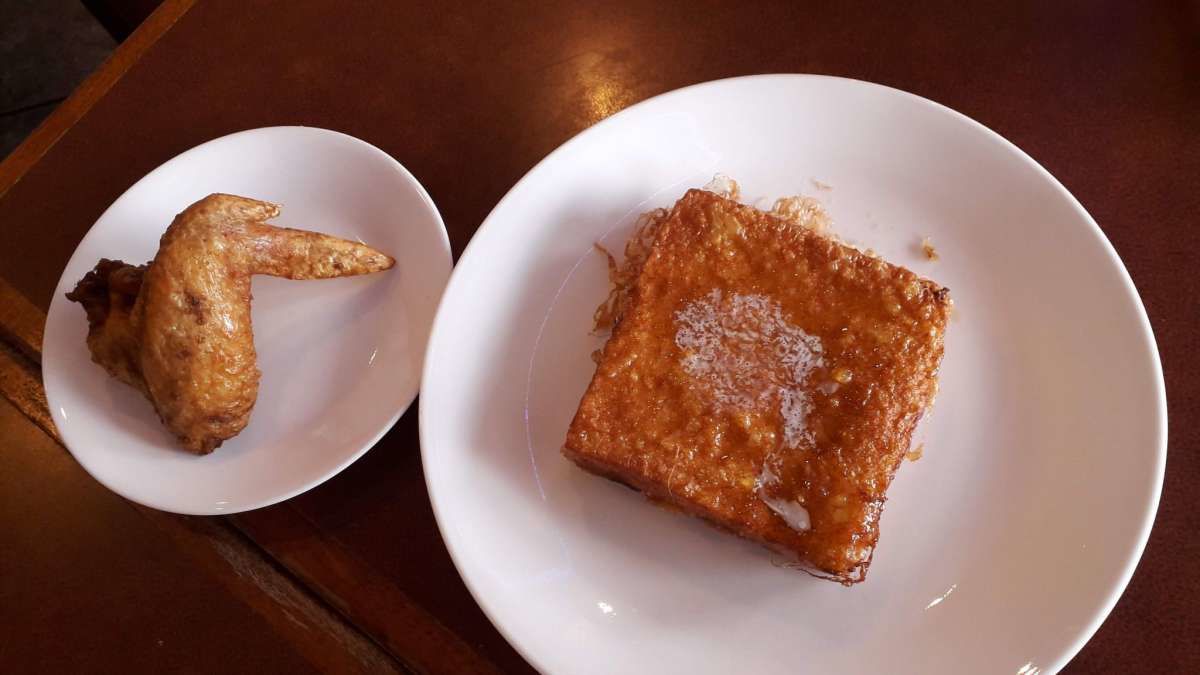 Unlikely partners: Hong Kong style French toast paired with a chicken wing.
Unlikely partners: Hong Kong style French toast paired with a chicken wing.
Deep fried french toast, egg tarts, baked pork chops smothered in tomato sauce and spaghetti bolognese are some of the best sellers at this cafe. In an odd way, Hong Kong’s Cafe is a diner. There’s coffee, toast, eggs and a hot dog if you really want it, but there’s also a distinctly Chinese twist. To the owner, Winnie Wong, this unique blend is summed up in a cup of Hong Kong milk tea.
“At Chinese restaurants,” she emphasizes, “the tea is usually a Chinese tea like pu’er but here, it’s milk tea.”
Hong Kong-style milk tea is a highly caffeinated, concentrated blend of Chinese and Western teas mixed with evaporated milk — and staunch competition to a cup of joe. The cafe offers an assortment of traditional goods, including vegetarian chicken and zhong, a steamed rice dumpling filled with five-spiced pork and a salted egg, wrapped up in banana leaves.
“These were the kinds of things we used to eat in Hong Kong,” Wong notes, a testament to the restaurant’s authenticity.
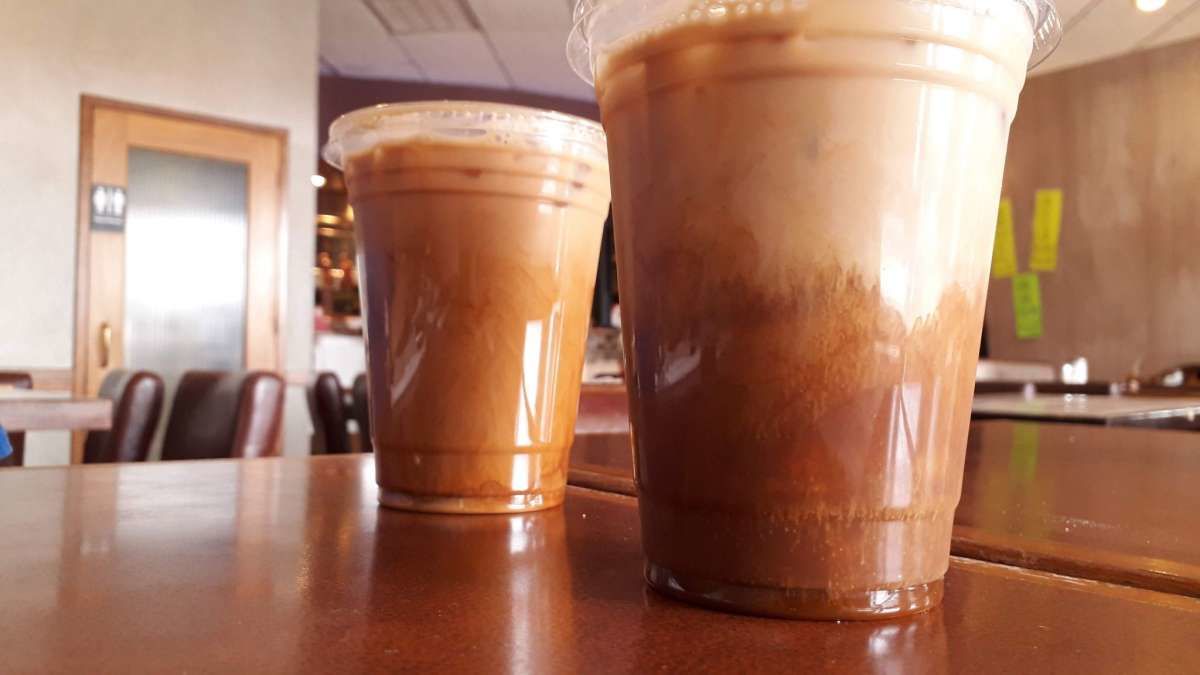 Fusion in a cup: Hong Kong style milk tea is a perfect mix of tea and rich milk.
Fusion in a cup: Hong Kong style milk tea is a perfect mix of tea and rich milk.
To longtime patrons, the coexistence of these cuisines is natural. Kerry Yung, a fellow Hong Konger-Houstonian, has frequented the cafe for almost 15 years.
“I come here when I miss Hong Kong,” she says, “this style of food, like the milk tea and French toast, is only found in Hong Kong.”
The restaurant even carries on one of the most important Hong Kong food traditions — afternoon tea. The Hong Kong-style afternoon tea, served from 3 to 6 p.m., is a hearty snack meant to tide diners over until dinner. The tea menu, in true fusion fashion, varies from plain congee to a fried chicken cutlet. For early birds, the breakfast menu is just as anomalous. The main staple is elbow macaroni served in broth, paired with fried luncheon meat and eggs. Beyond the food, there’s something else that ties the customers together.
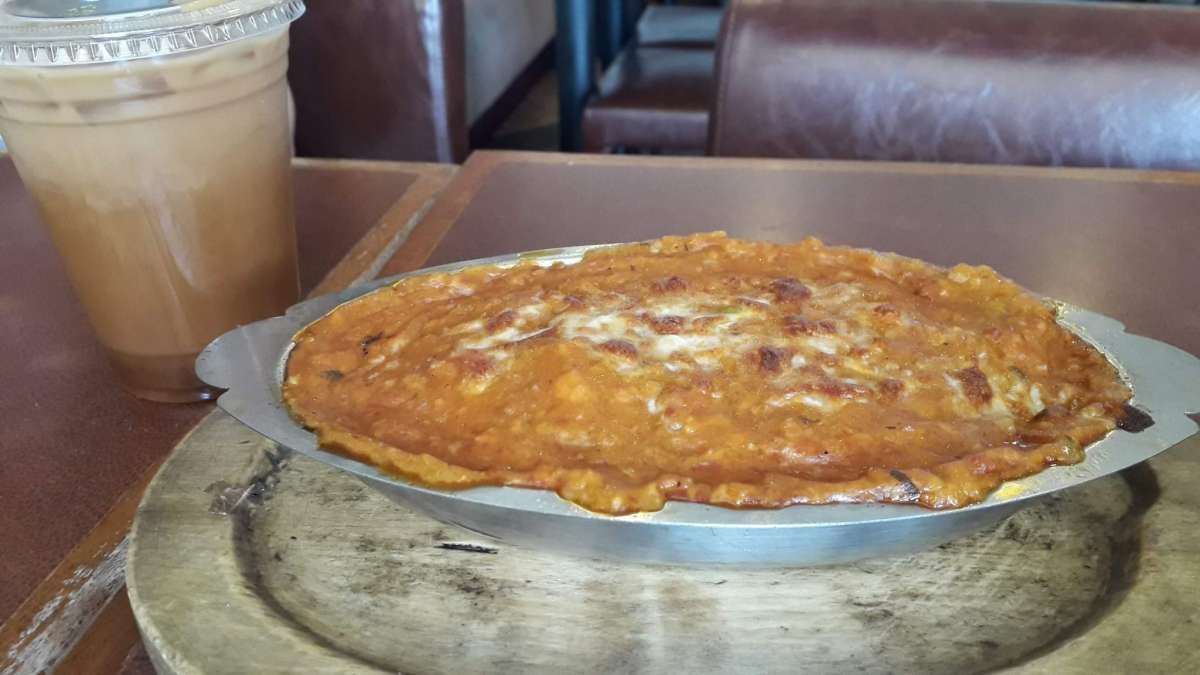
The ultimate comfort meal, an oven baked spaghetti bolognese with a bubbly cheese crust.
“I think it’s common interest,” says Kinny Yau, another longtime customer. As Yau enjoys her afternoon tea, she chuckles about how many times she has run into old friends here, other Hong Konger-Houstonians, completely by accident. “The people that come here understand one another, they know what to expect” she notes, “it’s comfortable for us, it’s familiar.”
For the Hong Kong diaspora, finding a cha-chaan-teng outside of the island is relatively rare. As the region is subjected to changing political systems, these spaces become even more important because they represent a culture that is being repressed. In recent years, identifying as a Hong Konger has become an act of defiance.
But to eat like one — to recognize the differences from Chinese food — is an act of edification.
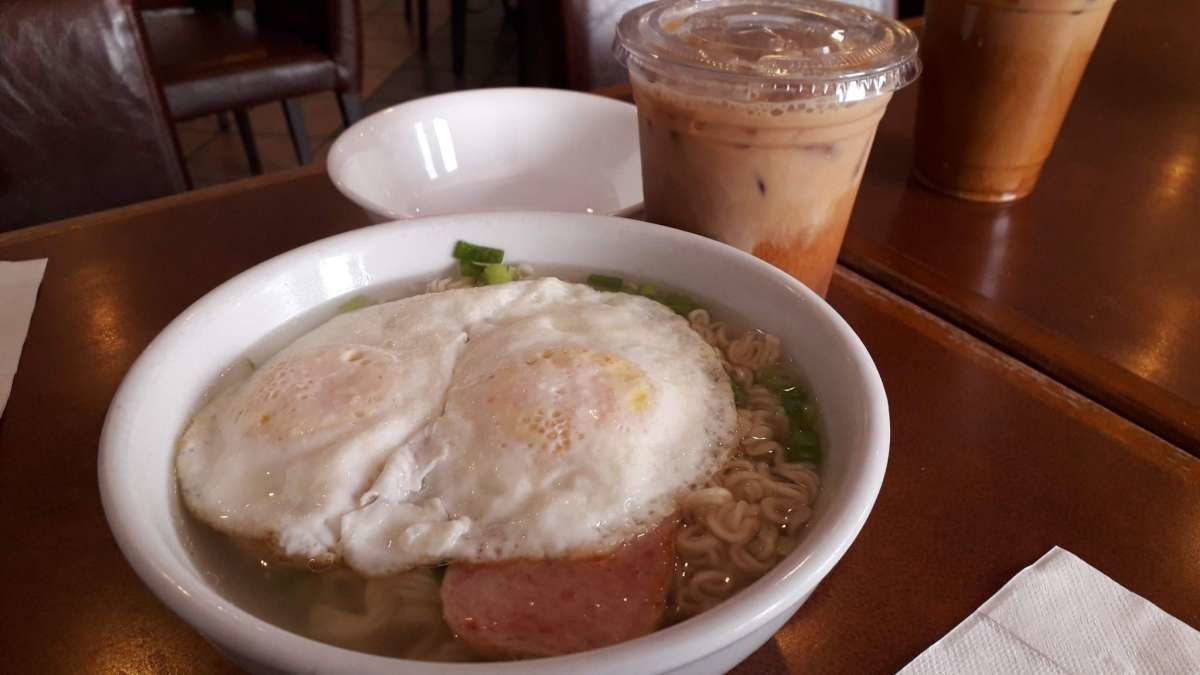 Instant noodles with spam and fried eggs is a breakfast staple of the cha-chaan-teng.
Instant noodles with spam and fried eggs is a breakfast staple of the cha-chaan-teng.
By exploring the depths and nuances of Chinese cuisine in Houston, we are taking on the responsibility to learn about what feeds us. Western cuisine is often categorized specifically (e.g. French, Italian, Greek), so why aren’t we giving Chinese food the same respect?
Labeling eateries like Hong Kong’s Cafe as Chinese restaurants is not as accurate as we once thought. Though it is constantly seen as Chinese, its existence is the direct result of Western colonization and influence. It doesn’t fit neatly under a single label, but thrives between two worlds.
The label Chinese has become all-encompassing, but by recognizing the unique cuisines and cultures that exist in Houston's Asiatown, we do more than eat, we pay respect to the individual cultures that feed us.











